If Sacred Plant Medicines Have Become Integral to Your Spiritual Practice...
And You Wish to Reinforce this Connection with Integrity, Inclusion, & Awareness
Get the Keys to Decolonizing Plant Medicine Culture
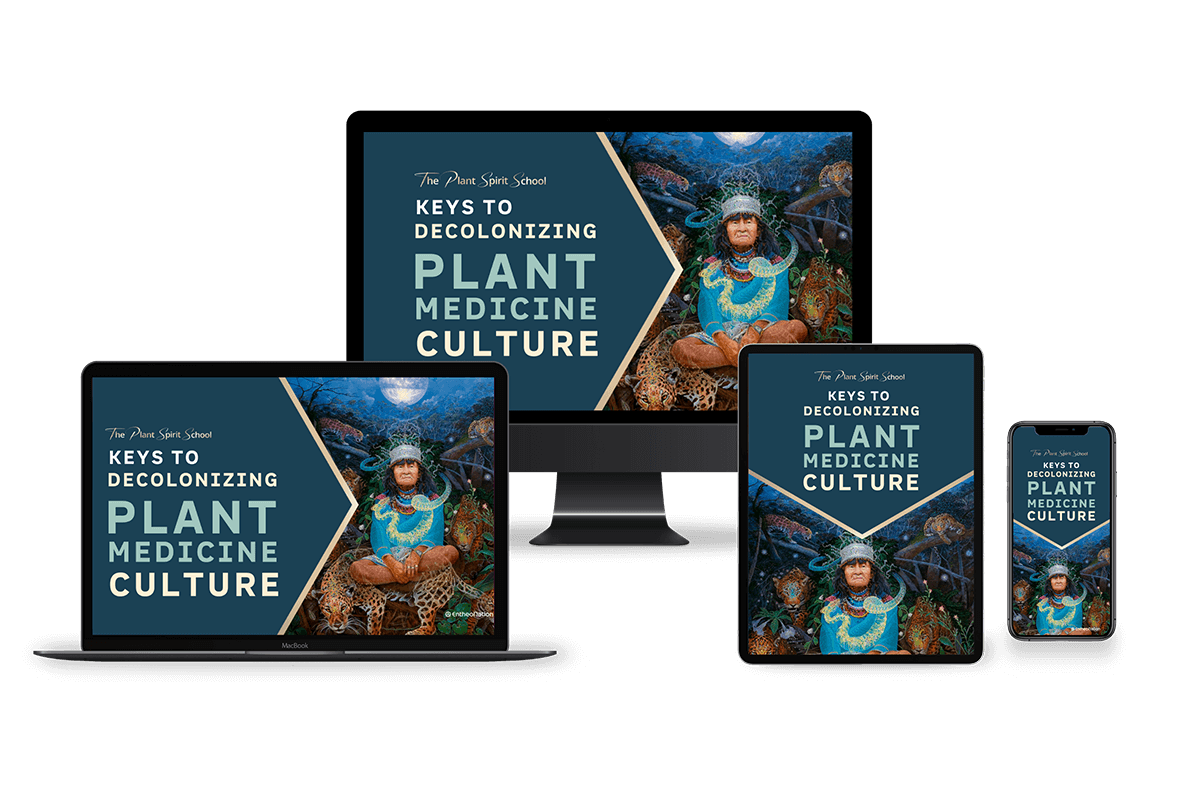
A Workshop Series for Healers, Coaches & Allies
with Lorna Liana & Friends
Yours Today For $297 $147

Imagine a World Where Plant Medicine Healing Was Accessible to All, Sustainably, & in Right Relationship to Indigenous Wisdom Keepers
Have sacred plant medicines become an integral part of your spiritual practice, identity or vocation? Perhaps you lead ceremonies or regularly participate in ceremonies. Maybe you have a healing profession, coaching business, integration therapy practice, or vocation that is informed by your ceremonial experiences, and the relationship you are cultivating with plant spirit allies feels authentic. Even if you are not indigenous, nor from the culture where these practices originated.
I understand where you are coming from.
Plant medicines can be profoundly healing and transformational, and humanity is in deep need of healing right now, especially where Western medicine has been ineffective. For so many people, of all races, orientation and economic means, from activists to war veterans, plant medicines have had a tremendous positive impact on our lives.
However, the globalization of plant medicines like ayahuasca has unfolded much like the expansion of yoga to the West: there are now far more non-indigenous people drinking ayahuasca, holding ceremonies, and making money from plant medicines than there are indigenous. The vast majority of people participating in plant medicine culture are doing so from a spirit of love and good intention.
Yet the inequities of society are being played out in the most spiritual of spaces… racism, privilege, supremacy, and extractivism can all be witnessed in a space where we are all supposed to be “One”.
Most would agree that increased access to plant medicine healing is beneficial to humanity. How might it be possible for people from the Global North to participate in medicine culture without inadvertently perpetuating colonialism and cultural appropriation?
Why Do We Need to Decolonize Medicine Culture?
The globalization and increased consumption of plant medicines like ayahuasca, iboga, magic mushrooms, peyote, and huachuma (San Pedro) are predominantly being driven by Western demand. Ceremony circles, retreat centers, and coaching organizations that offer ancestral plant medicines are expanding around the world. Most of them are owned and operated by white people, who are changing the context of the ritual container to suit their mostly white clientele, who are, in turn, paying hundreds and thousands of dollars for ceremonies and retreat experiences.
On the one hand, the expansion of plant medicine is helping an increasing number of people around the world who deeply need it, in spaces that feel familiar, comfortable, and culturally safe, with people they can relate to, in a language they understand.
On the other hand, to many indigenous, however, the capitalization of ancestral medicine and ceremonial ways of working with plants, feels like yet another colonialist extraction. But instead of oil, timber, rubber, or gold, this time it’s a spiritual extraction.
How does neocolonialism appear in the plant medicine community?
A white-dominated medicine community that hasn’t examined the harm of colonization, cultural appropriation, or systemic privilege can create tremendous harm for BIPOC, many of whom are healing personal and generational racial trauma in ceremony spaces.
This includes inadvertently furthering neocolonialist perspectives; fetishizing indigenous shamans or appropriating lineage-based healing practices one has not received permission to share; and perpetuating racial microaggressions towards participants of color.
Can Healing Plant Medicines Be Accessible to All?
We are profoundly indebted to the resilience of native people who have kept their knowledge and traditions alive through generations of colonialism, enslavement, and persecution for practicing their spiritual traditions. Modern medicine has benefited greatly from the sharing of medicinal plant knowledge by indigenous peoples around the world.
However, indigenous peoples around the world continue to struggle for survival and sovereignty. Violence, oppression and marginalization of indigenous peoples continues to this day. In many locations, the indigenous are the stewards of the last wild, pristine places on earth. They are the last stand between untouched wilderness and ever encroaching oil, timber, and mining companies. If the indigenous are unable to thrive, neither will the rest of humanity.
Plant medicines have the potential to offer profound healing to a deeply traumatized world. If these deeply spiritual experiences are only accessible to the privileged, how will humanity ever find peace?
Introducing...
★ The Plant Spirit Wisdom Workshop Series ★
The Keys to Decolonizing Plant Medicine Culture
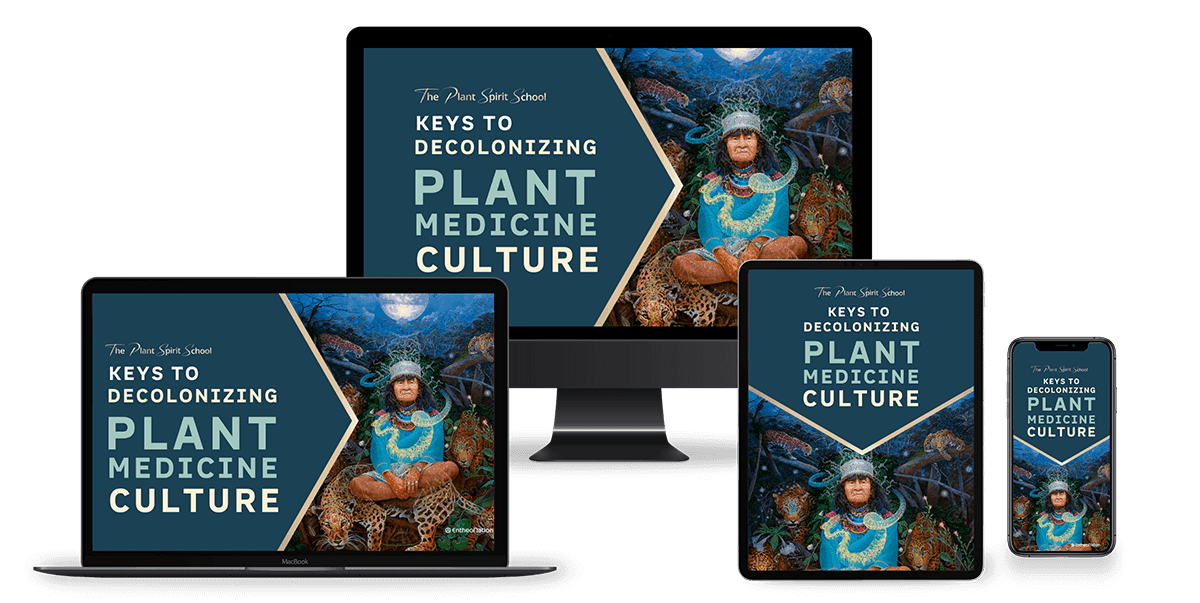
Regular Price: $297
On This Page Only
$147 (50% off)
Here's What You'll Learn
This is an ideal workshop for people who are white, or POC who have been racialized as white, who consider the use of ancestral plant medicines to be a core part of their professional or spiritual practice, who genuinely wish to see a more inclusive, equitable and socially just world. In this Workshop Series, we’ll explore:
Here's What You'll Get
Your purchase includes access to the Members Area where you will get:
What Our Students Are Saying
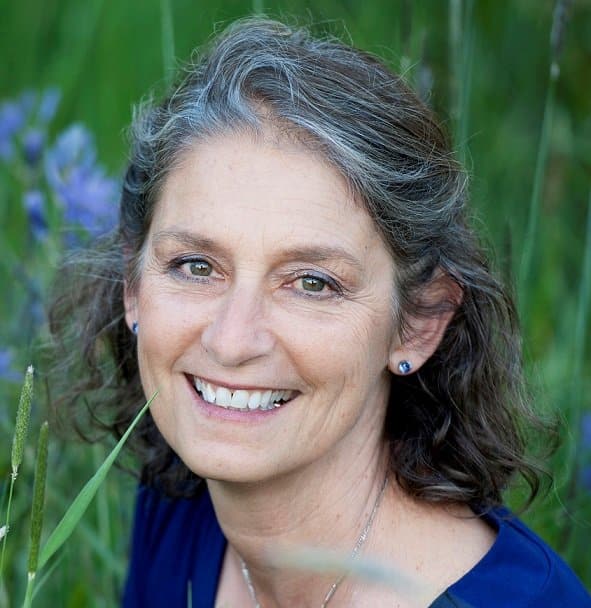
"
Lorna is an informed, articulate and caring teacher. She's put together an excellent course for anyone who's interested in changing our global culture to one of healing, sustainability, and respect. Decolonizing Plant Medicine Culture helped me learn about decolonization and what I can do to support indigenous communities and their essential knowledge of plant medicines. Highly recommended!
Ana Holub - psychedelic integration coach and author of Forgive and Be Free
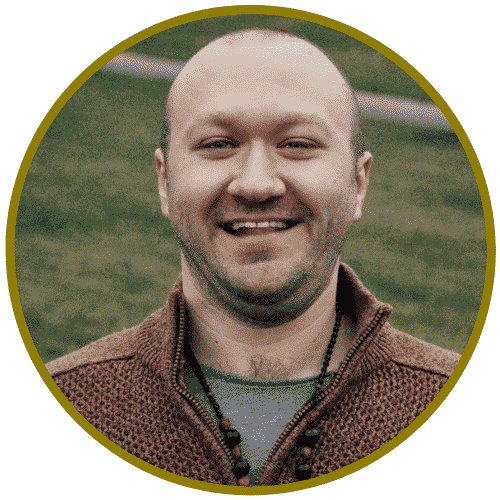
"
From a woman with a truly massive heart and an equally massive brain to match it, this course equips you with the tools you need to navigate the ever-emerging psychedelic renaissance with an ethos of strong ethics, responsibility, intercultural awareness and respect, compassion, empathy, and inclusivity.
It is no exaggeration that it gives us the keys to healing one of the world’s biggest sources of trauma: colonization. Not only has Lorna imparted her own expert knowledge and wisdom in this course, but she has also delivered some unquestionably powerful and influential voices from the very frontline of the world of intercultural plant medicine practices.
Marc-John Brown - Founder of Jungle Wisdom Academy
PLUS you’ll receive these special bonuses:
★ Bonus Digital Medicine Bundle ★
To support you in deepening your work with decolonizing yourself, your ceremony space, and your community, we have included these bonuses to explore ways in which you can increase diversity and inclusion in your organization, as well as your capacity for reciprocity.
Bonus #1: Sacred Reciprocity School
The Sacred Reciprocity School includes resources to inspire all whose lives have been transformed by sacred plant medicines, to become true allies to the indigenous movement. Hear from a wide range of experts about the shadow side of plant medicine globalization, and how we can do better. Discover:
You'll also hear from Tashka Yawanawá (chief); Wade Davis, world-renowned ethnographer & author; Kumiko Hayashi, Filmmaker (The Roots Awaken); Jimmy Piaguaje, Siekopai Leader, Alianza Ceibo & Filmmaker; Lara Jacoski, Filmmaker (Bem-te-vi Produções); Jeremy Narby, anthropologist & author of The Cosmic Serpent; Ivan Sawyer Garcia, Founder, Voices of Amerikua... and many more!
Bonus #2: Dismantling the Psychedelic Racial Divide
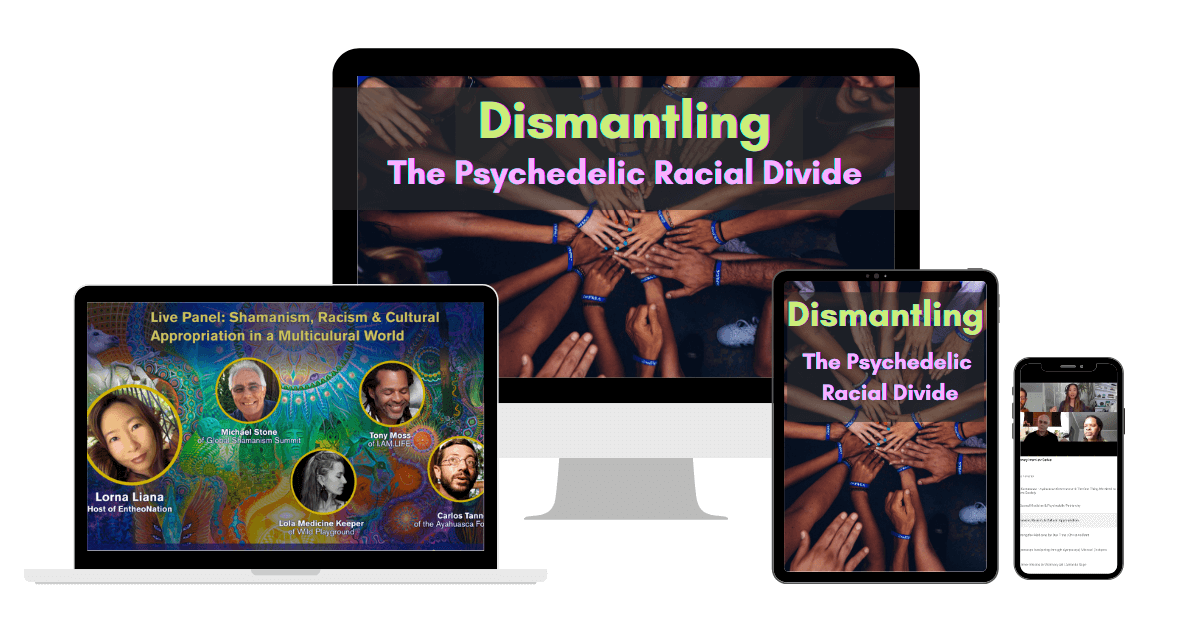
This collection of master classes explores what it will take to increase diversity and inclusivity in sacred ceremony spaces.
Bonus #3: Soul Retrieval with the 5-Elements
Guided Brainwave Meditation
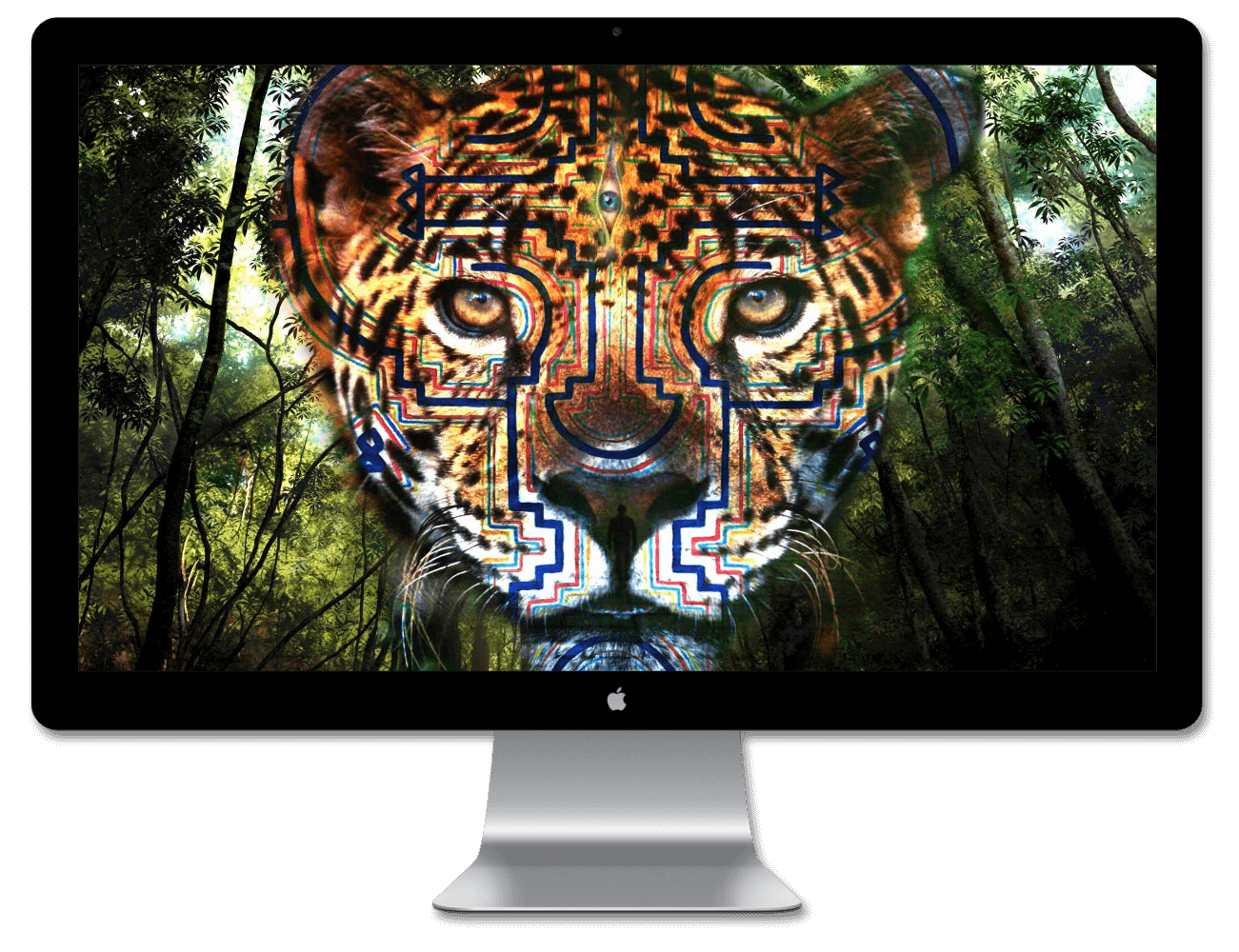
All of us have experienced trauma from being born into a socially-engineered system of oppression, whether we find ourselves in the privileged demographic or among the marginalized. The shamanic practice of soul retrieval is a deeply healing spiritual practice that can help us reclaim the parts of ourselves that were lost due to trauma. In this 30-minute guided Theta brainwave meditation you will:
The shamanic practice of soul retrieval can be found in many cultures, but brainwave technology, allows us to access shamanic states of consciousness faster. This original guided meditation artfully blends Theta wave isochronic tones, ambient instrumental music and Nature sounds. Just relax and hit play.
Regular Price: $297
On This Page Only
$147 (50% off)
Meet Your Instructors
Lorna Liana | CEO EntheoNation & Host of The Plant Spirit Summit
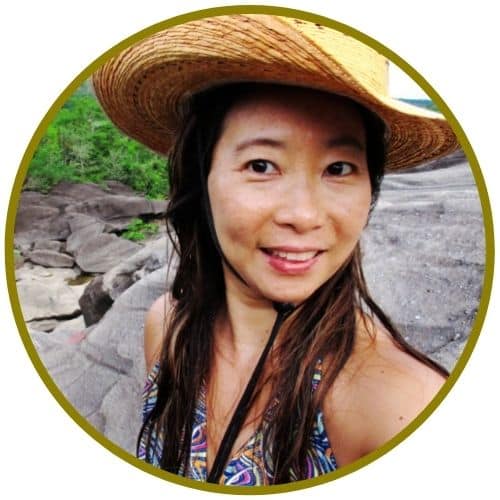
My name is Lorna Liana and I’m the founder of EntheoNation, a media platform that publishes educational content about psychedelics, modern shamanism and visionary culture. My vocation as an Internet marketer, online business coach, and digital publisher was ignited deep in the Brazilian Amazon in 2004, where I was a guest of the Huni Kuin community of Jordão, in Acre Brazil.
Ayahuasca helped me heal a decade of suicidal ideation and self-hate that I had developed from a childhood marred by intense, daily racial harassment as a child of Taiwanese immigrants growing up in the United States and later, as one of the dominated Chinese majority in colonial Hong Kong, which was ruled by the British.
In my 18 years of working intentionally with psychedelics for healing and personal growth, I’ve come to understand the extent in which racial trauma pervades communities of color, especially black, brown, and indigenous communities in white-dominated, colonized countries, plus the promise of psychedelic medicine to heal this trauma.
Over the last 20 years, my activist work in indigenous rights and cultural preservation has brought me to:
While I am not indigenous, nor do I claim to be a representative of any indigenous nation, I am blessed to have spent time in indigenous homes around the world, where I shared their ceremonies, food, fires, hopes, challenges and dreams. In the spirit of reciprocity, I am committed to deepening my work as an ally through financial support and by elevating indigenous perspectives through my work in media and online education.
Our Guest Teachers
Dr. Tone Rawlings| Decolonize the Heart & Mind Consulting
Artist, science teacher, and design-thinking and systems-thinking enthusiast. When I’m not shaping the minds of our future generation, you can find me talking about quantum science, plant-based medicine, and ancient wisdom streams with friends, engaging in lively conversations about social justice with my online hive, and producing artwork that explores color, human’s divorce from nature, and the human condition. I work with individuals (teenagers and adults) and organizations that need help generating innovative solutions in order to create positive social and environmental change.
I was born Tonya Kafi Rawlings. I was born a slave. A slave to thoughts that I thought, but that weren’t mine - thoughts created from the collective white supremacy consciousness. My parents gave me the name Kafi as a point of liberation.
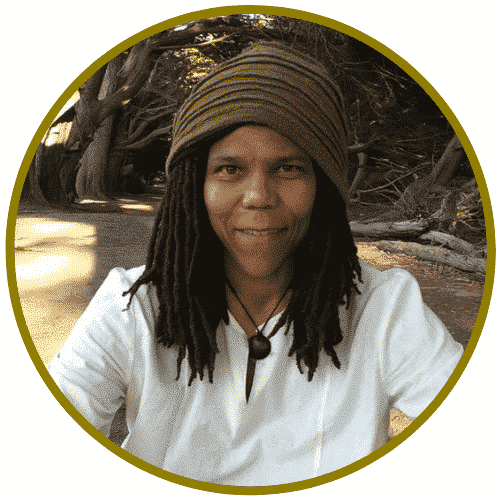
Assimilation kept me from my “knowing” of who I was so much so that I doubted my own dreams as impossible or trivial or one’s that had to be deferred. Within my assimilation, I struggled to be free to define my own thoughts and my own reality. My deep knowing kept nagging at me to pay attention, but my colonized mind kept me from deeply exploring this aggravation. This continued dissonance between my assimilated self and my knowing led me to the most powerful moment in my life - the catalyst to my liberation.
My whole life changed after a powerful, two week long plant-based medicine retreat in Peru to heal my ancestral lineage and epigenetic, intergenerational, and personal traumas. Peru brought my awakening on like a tidal wave of light.
It illuminated what had been looming in the darkness, looming in the depths of despair, shame, and anguish. It made me aware of the disdain and disgust that I had for myself. It doctored my cells and provided me with a homecoming. It was a chance to move from my suffering that took up residence outside of myself in the pain body and sink back into my inner knowing. It was an invitation to cultivate inner peace, deep love for myself, compassion, forgiveness, and self-mastery. It helped me connect with and grieve with ancestors.
Maestro Cesar Maynas Bardales | Master Plant Medicine Healer
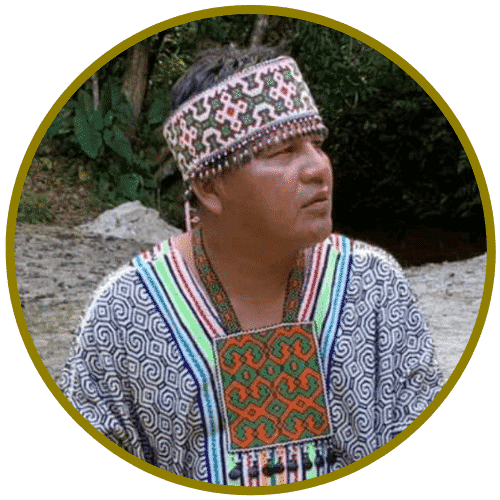
Cesar Maynas Bardales a.k.a. Soimetsa (meaning 'Beautiful and Well-Done Work) is a Shipibo-Konibo Onaya (medicine man) with 25 years of experience in the treatment of human malaises with medicinal plants and, in particular, the master plant Oni (Ayahuasca).
Recognized and highly-regarded by the Peruvian Ministry of Culture, Cesar is chief of the Cantagallo Shipibo-Konibo community in Lima, Peru.
He has conducted ceremonies in the United States of America and Chile with excellent results.
In Pucallpa, Irapai, he directs the center "Rao Kano Xobo" (meaning 'House of Medicinal Energy'), where people from Russia, Australia, Canada, Italy, Spain, Holland, England, Romania, New Zealand, United States, Mexico, Colombia, Argentina, Brazil, and Chile have completed traditional medicinal master plant diets and been healed of significant malaises.
The icaros (sacred healing songs) of Onaya Soimetsa deserve special distinction; they are an expression of intergenerational heritage that have been transmitted to him through his genealogical tree - made of many other spiritual Onayas - penetrating his patients' bodies (energy body, subtle body, and physical body).
Soimetsa perfected his ikaros with the guidance of his teacher, the great Onaya Antonio Muñoz Burga AKA Senen Pani (meaning 'Suspended Vertical Energy in the Universe') who passed away recently. The legacy of Master Senen Pani lives on by way of the ikaros and the serious work of Onaya César Maynas Bardales - acts of true traditional Shipibo-Konibo healing art that continue to serve the healing of brothers and sisters around the world.
Onaya Cesar lives in Yarinacocha, Pucallpa with his wife, his mother, and his wider family.
Who This Workshop Series is For
This workshop is ideal for anyone who is deepening their work with plant medicines, and wishes to do so with integrity, respect and reciprocity to the indigenous cultures that have long held them sacred. This workshop is for you if:
Who This Workshop Series is NOT For
This is not work for spiritual bypassers, the fragile or people who wish to be protected from the cold hard truths of the world by a bubble of toxic positivity. This workshop is not suited for:
Decolonization work is hard, it takes courage, love and commitment. It involves painful inquiry into yourself, your beliefs, your past and present behaviors, including all the ways in which you have been complicit in a system that has harmed and killed so many BIPOC, whether you chose to, wanted to, or not.
This work involves taking ownership and responsibility for all the ways in which we profit from and perpetuate an oppressive system that is entirely a social construct, that has nothing with our intrinsic humanity, so that we can move forward and dismantle it.
More often than not, there will be no monetary reward or public accolade for you to this work. In many cases, it may involve additional expense or labor, as you add more scholarships to your programs, or allocate a greater percentage of revenues towards reciprocity programs. You may even come under greater scrutiny by critics who don’t understand the efforts you are making.
However, this work is important to do, not because it makes you feel good, but because it is right.
FAQ
This is a deeply nuanced discussion with many shades of strong opinions. While the sentiment comes from a place of good intentions, a genuine desire for the well-being of the indigenous people who have endured so much hardship from colonization, it does not take into account what the indigenous may want for themselves.
For most indigenous communities in the Amazon, with the exception of the last uncontacted tribes (roughly 100 worldwide), the Nature around them is already depleted. So they need money to survive...to buy food, clothes, gasoline and medicine… yes, Western medicine, like antibiotics, antimalarials, antiparasitics and pain meds.
Territorial, economic and political sovereignty for indigenous peoples in the Americas continues to be under siege to this day.
In order to organize and fight against these encroachments, indigenous leaders and activists need technology to surveil their territory, Internet to communicate with international allies, and cell phones to organize between themselves.
If everyone else has cell phones, wifi, laptops and motorized vehicles, who are we to say that they can’t have these things because it will tarnish their “pure nature”?
The idea that the indigenous continue to live in harmony in Nature, hunting, fishing and foraging for their daily needs, uncorrupted by civilization, is an extension of the concept of the Noble Savage…
Is a romanticized ideal often held by non-indigenous people who never spent any time in indigenous communities.
The belief that the indigenous shouldn’t have the things that we do (because they are more pure than us) is a perspective that people like Bruce Parry, producer of BBC's "Tribe" series, finds to be “paternalistic”.
And these perspectives are fundamentally harmful, not helpful to the indigenous. It's for this reason we created this workshop series.
This program is about decolonizing plant medicine culture. It addresses the expansion of plant medicines as a global phenomenon. It examines the neocolonial frameworks that continue to harm black, brown, and indigenous people of color (BIPOC), especially in ceremony spaces. Included in "people of color" are people of Asian descent.
As a woman of color, Lorna Liana has direct lived experience of being colonized, and direct experience of racial harm from systems founded upon white supremacy. She grew up in the British colony of Hong Kong, a place where the Chinese majority did not even have the right to elect their own government officials until 1997. She also has direct experience of healing racial trauma with psychedelics.
What further complements her qualifications for teaching this material is her Bachelors of Science in International Relations & Politics, which includes substantive coursework in geopolitics, the rise of Western civilization, much of which is founded upon colonialism and conquest. In other words, the history of colonialism is included in her formal education.
Her work as a media publisher and online event producer on psychedelics and modern shamanism gives her direct insight into the pressing concerns in the plant medicine community.
FINALLY...
We do have indigenous teachers. Please scroll up to see our list of guest teachers. We will add more as they are confirmed.
Yes. We are well aware that there are many indigenous groups around the world with distinct cultures, languages, histories, and experiences of colonization. We also acknowledge that large groups of people can also have shared collective experiences. Colonized peoples have a shared experience of being controlled and oppressed by foreign invaders. The indigenous of the Americas have a shared collective experience of European colonization, even though there are distinctly different experiences if you were native and ruled by the French, British, Spanish or Portuguese
Western colonialism is founded upon white supremacy. As a broad group, BIPOC who live in a land once colonized by Western powers have a shared experience of institutionalized white supremacy. Within the broad category of BIPOC, blacks, latinx, Asian, and indigenous had their own distinct experiences with these institutions as a racial group.
If we wish to truly dismantle systems of oppression, we need to get comfortable talking about collective experiences, as well as group and individual experiences, and understand the differences in each.
Live Workshop Zoom Call-in Details, recordings, handouts and bonus content is all posted to the Members Area, where you can download them instantly to your computer, laptop, or smartphone. Please note that, in order to access this content, you will need to create an account on Teachable.com.
Content is available in the members area for one year; however, you can download the files directly to your devices and keep the digital files forever.
We would never want you to be unhappy! If you are unsatisfied with your purchase, contact us in the first 30 days and we will give you a full refund.
Refund Policy: 30-Day 100% Money Back Guarantee